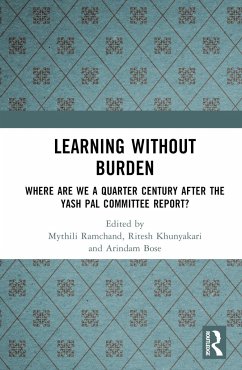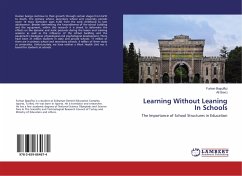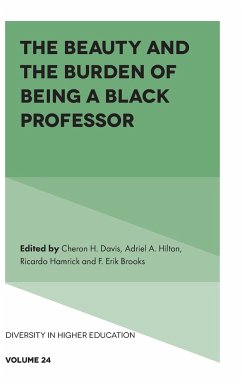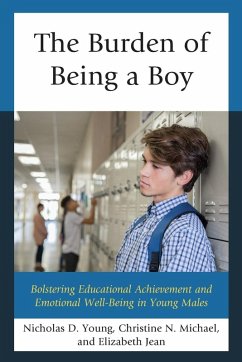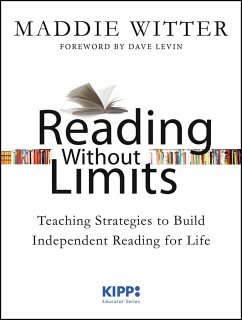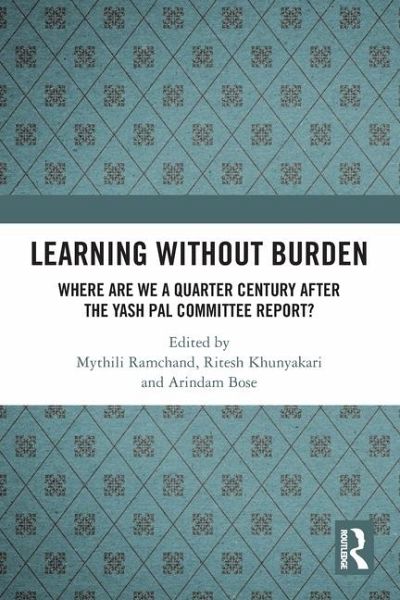
Learning without Burden
Where are We a Quarter Century after the Yash Pal Committee Report
Herausgeber: Ramchand, Mythili; Bose, Arindam; Khunyakari, Ritesh
Versandkostenfrei!
Versandfertig in 1-2 Wochen
57,99 €
inkl. MwSt.
Weitere Ausgaben:

PAYBACK Punkte
29 °P sammeln!
This book looks at education reforms, planning and policy through an exploration of the Yash Pal Committee Report (1993) in India, which made recommendations to improve the quality of learning while reducing cognitive burden on students.





